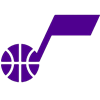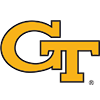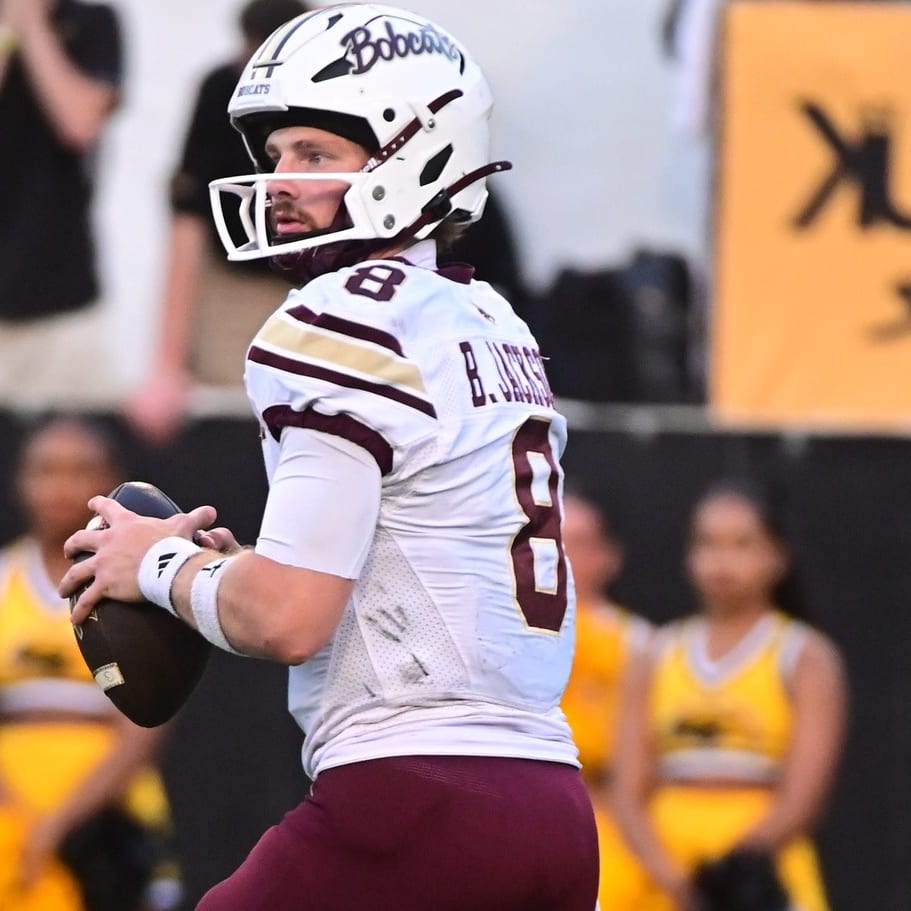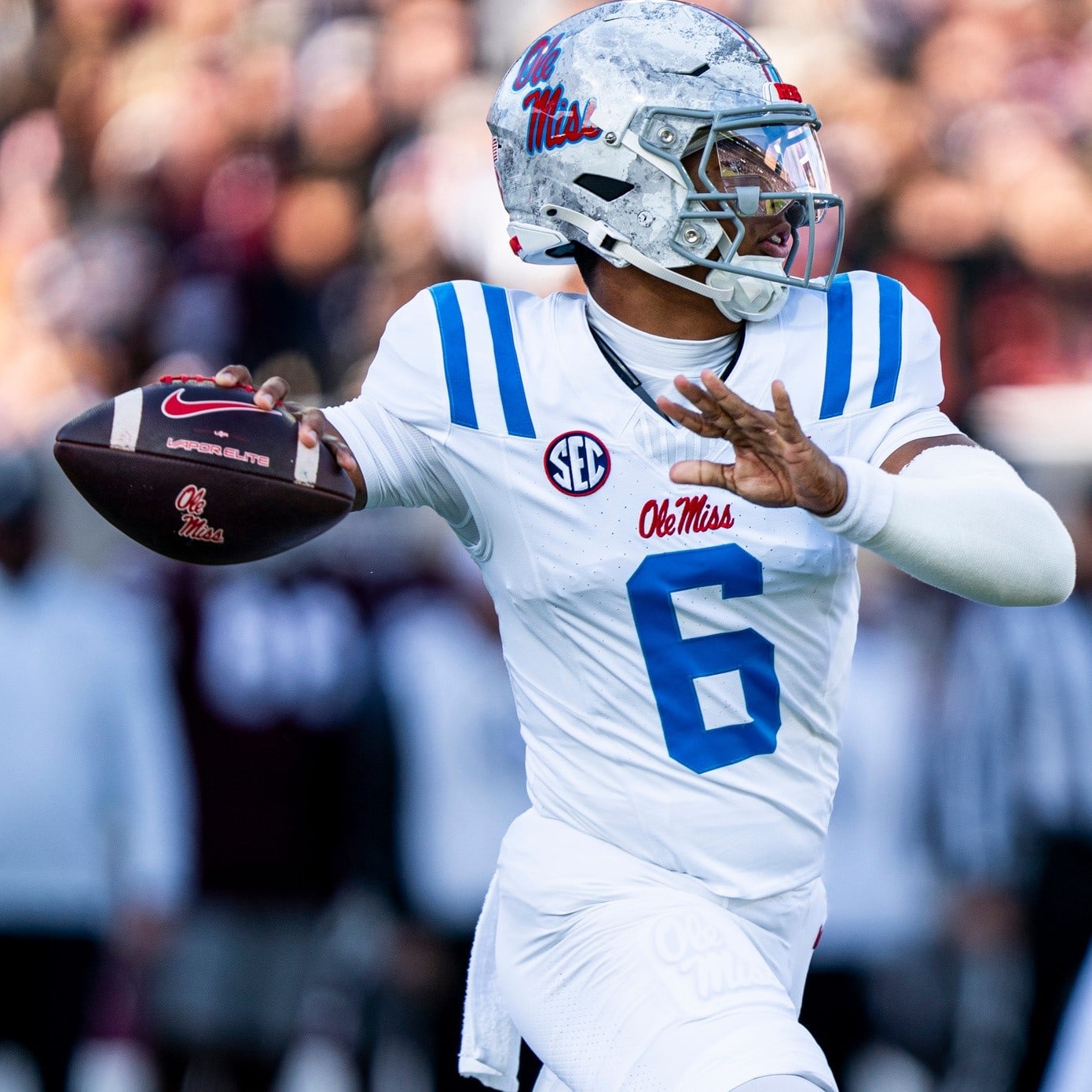All-MWC 1st Team
QB: Kent Myers, Utah State (17)
RB: Jeremy McNichols, Boise State (2)
RB: Donnel Pumphrey, San Diego State (6)
WR: Thomas Sperbeck, Boise State (5)
WR: Tanner Gentry, Wyoming (17)
TE: Billy Freeman, San Jose State (13)
All-MWC 2nd Team
QB: Kenny Potter, San Jose State (25)
RB: Brian Hill, Wyoming (16)
RB: Devante Mays, Utah State (41)
WR: Devonte Boyd, UNLV (21)
WR: Hasaan Henderson, Nevada (46)
TE: Jake Roh, Boise State (17)
All-MWC 3rd Team
QB: Johnny Stanton, UNLV (26)
RB: James Butler, Nevada (44)
RB: Izzy Matthews, Colorado State (49)
WR: Jake Maulhardt, Wyoming (70)
WR: Michael Gallup, Colorado State (76)
TE: Jacob Hollister, Wyoming (34)
Sleepers
Josh Allen, QB, Wyoming
Allen is a long shot merely worth monitoring outside of MWC-only leagues, but the pieces really are in place for him to have a successful first year as starter. Allen (6-foot-5, 222 pounds) has real dual-threat upside and has a strong supporting cast at running back and the pass catcher positions. He completed 3-of-4 passes for 32 yards while running three times for 40 yards in a start against Eastern Michigan before suffering a season-ending injury last year, so there's reason to believe he'll continue demonstrating significant rushing upside. With the rushing production accounted for, the question of whether Allen is a good passer doesn't matter so much – the pass-catching trio of Tanner
All-MWC 1st Team
QB: Kent Myers, Utah State (17)
RB: Jeremy McNichols, Boise State (2)
RB: Donnel Pumphrey, San Diego State (6)
WR: Thomas Sperbeck, Boise State (5)
WR: Tanner Gentry, Wyoming (17)
TE: Billy Freeman, San Jose State (13)
All-MWC 2nd Team
QB: Kenny Potter, San Jose State (25)
RB: Brian Hill, Wyoming (16)
RB: Devante Mays, Utah State (41)
WR: Devonte Boyd, UNLV (21)
WR: Hasaan Henderson, Nevada (46)
TE: Jake Roh, Boise State (17)
All-MWC 3rd Team
QB: Johnny Stanton, UNLV (26)
RB: James Butler, Nevada (44)
RB: Izzy Matthews, Colorado State (49)
WR: Jake Maulhardt, Wyoming (70)
WR: Michael Gallup, Colorado State (76)
TE: Jacob Hollister, Wyoming (34)
Sleepers
Josh Allen, QB, Wyoming
Allen is a long shot merely worth monitoring outside of MWC-only leagues, but the pieces really are in place for him to have a successful first year as starter. Allen (6-foot-5, 222 pounds) has real dual-threat upside and has a strong supporting cast at running back and the pass catcher positions. He completed 3-of-4 passes for 32 yards while running three times for 40 yards in a start against Eastern Michigan before suffering a season-ending injury last year, so there's reason to believe he'll continue demonstrating significant rushing upside. With the rushing production accounted for, the question of whether Allen is a good passer doesn't matter so much – the pass-catching trio of Tanner Gentry, Jake Maulhardt and Jacob Hollister will help Allen overachieve in that regard.
Johnny Stanton, QB, UNLV
Stanton still needs to beat out Kurt Palandech for the starting role at UNLV, but the smart money would appear to favor Stanton in that race. Palandech was profoundly limited as a passer last year, completing just 75-of-152 passes (49.3 percent) for 794 yards (5.2 YPA), which more than negates whatever promise was shown in his TD:INT ratio of 9:5. Stanton is a former four-star Nebraska recruit who has a history with UNLV offensive coordinator Barney Cotton. Stanton's running ability should be close to a definite, and given that he doesn't need to do much to outdo Palandech as a passer, it's just hard to see Stanton losing this competition.
Rashaad Penny, RB, San Diego State
Donnel Pumphrey is a beast and the obvious king of San Diego State football, but last year showed that this is an offense with room for two running backs to make an impact. Playing off the bench, Chase Price ran for 1,008 yards and six touchdowns on 190 carries in 14 games last year and, particularly given Pumphrey's perilously light playing weight around 180 pounds, the Aztecs will have reason to make room for Penny to take up around 14-to-15 carries per game in 2016. Penny looks significantly more talented than Price, as Penny's 61 carries last year went for 368 yards (6.0 YPC) and four touchdowns, and Penny's three kickoff return touchdowns on 24 attempts imply serious open-field running skills.
Michael Gallup, WR, Colorado State
An ankle injury has Gallup's availability in some question for Week 1, but what doesn't appear to be in question at this point is his status as Colorado State's lead wideout. With Rashard Higgins and Joe Hansley no longer around, the Rams need to account for a huge number of targets from last year's offense, and it appears that Gallup is plan 1A and 1B. Listed at 6-foot-1, 195 pounds, Gallup's efficiency in 2016 is anyone's guess, but the volume seems somewhat assured given that Higgins and Hansley combined for 162 targets last year. If Gallup can get 10 targets per game – something that seems better than a 50-50 bet – something around 800 yards should be his floor.
Cedrick Wilson, WR, Boise State
Like Gallup, Wilson is a JUCO transfer who brings something new to his FBS offense. Wilson isn't a candidate to lead Boise State's wideouts – Thomas Sperbeck will not be outdone – but Wilson brings unique height at a listed 6-foot-3, making him a potential red-zone standout given that Sperbeck (6-foot) and Chaz Anderson (5-foot-10) are undersized. Wilson has received steady praise in practices and is locked into a starting role, so there should be more than just a red-zone specialist role available for him. More specifically, Wilson is a good bet to emerge as Boise State's second wideout behind Sperbeck given that Anderson was both inefficient (53.2 percent catch rate, 7.4 yards per target) and unexplosive (13.8 YPC). Anderson saw 79 targets in 13 games last year, and the now graduated Shane Williams-Rhodes saw 83 targets. If Boise State deservedly scales back Anderson's target volume from roughly six per game to four and Wilson absorbs most of SWR's target volume, Wilson could see as many as eight targets per game this year. That would put him on the radar in nationwide fantasy leagues, let alone MWC-only.
Busts
Brett Rypien, QB, Boise State
This is a case where fantasy and real life diverge; Rypien was an immensely pleasant surprise as a true freshman last year, overthrowing incumbent starter Ryan Finley to emerge not only as the superior option, but one of the most prolific freshmen quarterbacks in college football history. The problem with Rypien's 2016 fantasy value is at least twofold – the first is that he's not likely to be cheap in drafts after 3,350 yards (7.8 YPA), 20 touchdowns and eight interceptions as a ten-game starter, and the second is that his lack of rushing production puts a severe cap on his upside relative to the hype his passing prowess generates. It adds up to an inefficient fantasy investment – our projections put him behind running quarterbacks Kenny Potter and Johnny Stanton, yet the public awareness around Rypien means he might go earlier than either player in fantasy drafts – perhaps much earlier. Things are a bit different in leagues that award six points per passing touchdown, but even in that scoring system our projections put Rypien (27.7 PPG) behind Potter (28.0 PPG) and only slightly ahead of Stanton (27.3 PPG).
Air Force Running Backs
The Air Force running game as a whole should be highly efficient, and any one of Timothy McVey, Jacobi Owens, D.J. Johnson or Shayne Davern could go off in any given week, but the extreme depth of this backfield will limit the upside and consistency of all involved. If you must target one of these fellows, I'd recommend McVey, who's ranked 60th among running backs, but his production is dependent on extreme efficiency given that the presence of Owens, Johnson and Davern figures to limit his workload. Although McVey scored 13 touchdowns last year on just 61 touches from scrimmage – an incredible touchdown rate, to be sure – he needed to average 8.5 yards per carry and 30.7 yards per catch to pull it off. McVey's yardage and touchdown efficiency both are all but guaranteed to fall off a cliff, yet the workload increase won't necessarily be much with so many other runners vying for carries.
Paul Harris, RB, Hawaii
Although he did an excellent job in 2015, running for 1,132 yards (5.8 YPC) and six touchdowns in 12 games, Harris drew just about the shortest straw possible with Hawaii's 2016 schedule. He has a manageable Week 1 game against California, but traveling to Australia to play it is a complication, especially when the next weekend involves a trip to Ann Arbor, followed by a trip back to Hawaii the next Saturday, followed by a flight to Arizona the next Saturday. I'm not going to guess how many hours in flight all of that entails, but I will presume these guys won't be sleeping especially well in the first month. New coach Nick Rolovich should prove an upgrade over Norm Chow, but he's still a new coach, and the resulting transition period will make those absurd travels all the more difficult. Harris should acquit himself well, but Hawaii might struggle to compete as a whole, which will affect both Harris' workload stability and scoring opportunities.
Teriyon Gipson, RB, New Mexico
Gipson is a fine player who should give you a more than adequate return if you have the proper expectations, but expecting him to absorb the workload previously held by Jhurell Pressley is ill-advised. The New Mexico offense is hellbent on rotating its running back carries throughout a large cast of candidates, and Gipson's 2016 season is unlikely to look substantially different than his 2015 season, in which he finished with 147 carries for 850 yards (5.8 YPC) and six touchdowns in 12 games. Those numbers, after all, were about the same as Gipson posted in 2014, when he finished with 809 yards and eight touchdowns on 150 carries (5.4 YPC). It is possible that Gipson sees his carries-per-game figure jump from the 12.25 of last year to something like 13.75 in 2016, but at a listed 5-foot-8, 182 pounds, Gipson just isn't built for much more than that.
Jerico Richardson, WR, Nevada
Just as with Gipson above, Richardson is a solid player who should give you an adequate return if you don't overpay to acquire him. With the addition of Chip Kelly disciple Tim Cramsey at offensive coordinator, the widespread expectation is that the Nevada passing game will yield more fantasy value, if only from volume increase, and the consequent expectation among the public is that Richardson's productivity will go to a new level as Nevada's lead wideout. I don't doubt that Richardson's production will improve, but I do question whether he's the lead wideout in Nevada. Richardson's 68 receptions last year to Henderson's 52 certainly imply a safe lead for Richardson, but an efficiency analysis reveals Henderson for the better player, I think, and I would imagine Cramsey will respond by making a more even target split between Richardson and Henderson after the 2015 season saw Richardson secure 111 targets to Henderson's 91. The problem for Richardson is that he averaged only 6.7 yards per target while Henderson averaged 8.1, and depth of target can't fully explain this since Richardson's catch rate (61.3) was only marginally better than Henderson's (58.2). Richardson could still lead Nevada in receptions this year – indeed, I project that very thing to happen – but I also think it will be a slim lead, with Henderson taking the lead in yardage and touchdowns in the meanwhile.












































